The 10 Biggest Dangers Posed By Future Technology
Lists, Science, Shocking, TechnologyIt’s not easy predicting the future of technology. In the fifties it seemed a pretty much foregone conclusion that by 2015 we would all be commuting to the moon in our flying cars. Yet here we are, still making a living on earth and still driving around on four wheels.
Today, predicting the direction in which technology is heading is a lot easier than it was 65 years ago. Unfortunately, these advancements don’t always have the potential to benefit mankind, sometimes the opposite is true. Is our way of life, or indeed all of humanity, at risk from these dangers? Or are these predictions just as outlandish as those made in 1950?
The Total Loss Of Privacy
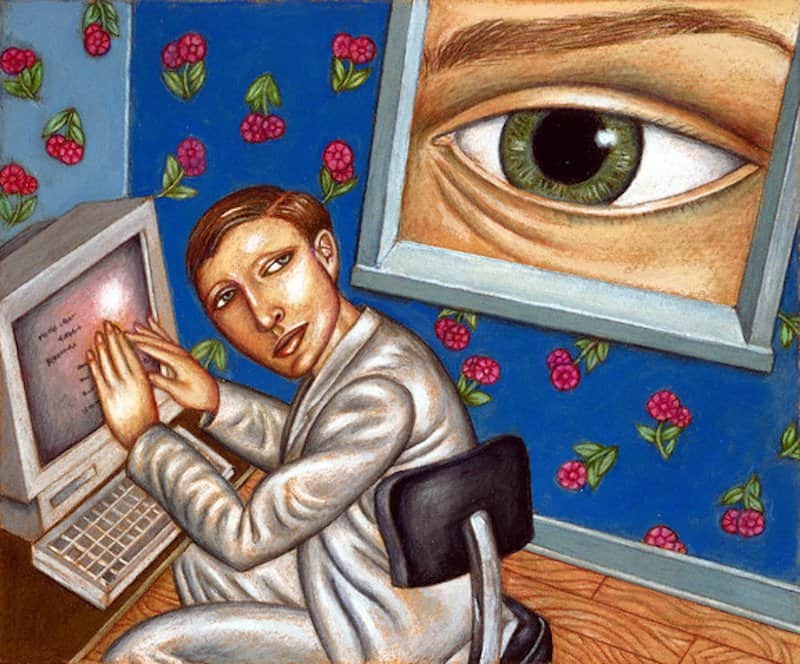
There are plenty of people who would argue that this isn’t a problem posed by future technology, but one which is already here. After the recent revelations that Samsung’s range of new smart TVs may be recording users private conversations and sharing the details with third parties, the fear that our home appliances may be spying on us is becoming less sci-fi paranoia and more a real concern.
So where will this end? Will the rush to embrace the digital era mean us waving goodbye to our privacy forever? The worry is that a day may come where every single aspect of our lives is monitored and recorded by governments who want to know what we’re up to, conglomerates investigating our spending habits, or even banks making sure we aren’t living above our means.
The often repeated line from those wishing to take our privacy away from us is that it is for our own protection. That if we’re so concerned about our privacy, then we must have something to hide; so stop closing the bathroom door when you go to the toilet, it makes you look suspicious.
A Permanent Digital Connection To The Workplace

Those of a certain age may remember a time when standard working hours consisted of Monday through Friday, 9 to 5. When you got home, work was mostly forgot about until the next day or after the weekend; it’s now pretty rare to find any occupation where this is still the case. As society as a whole becomes even more connected, we can expect work to intrude ever more into our home and family lives.
How would this be a danger? For a start there’s the possibility of companies ruling every aspect of an employees life, knowing where they are and what they’re doing at any given time. There’s also the potential workaholic lifestyle stifling human creativity. Even today most Americans spend an extra day a week working after hours, this is only like to increase in the future, leading to a multitude of health (death from overworking isn’t uncommon) and social problems.
All Data Becoming Digital
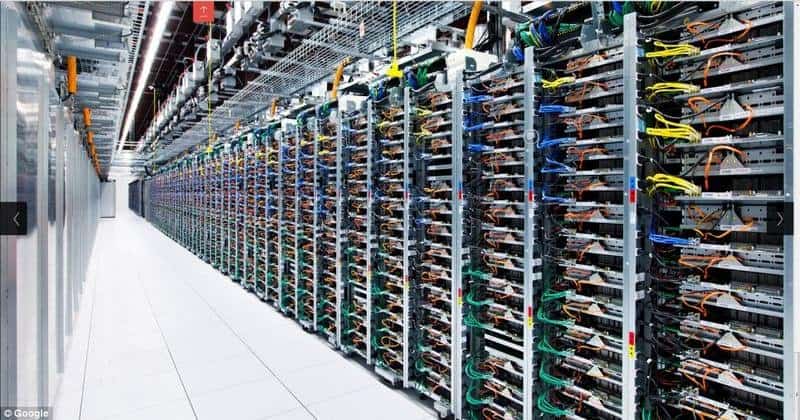
There are people alive today who have never seen a VHS tape, all they’ve ever known is the digital era of data storage. Even what was once the most popular ways of recording information, on paper and on printed photographs, is becoming less popular, thanks to the speed and simplicity their digital alternatives offer.
What possible dangers could arise from continuing this trend of data storage? Well there’s the risk of increasingly advanced technology becoming incompatible with today’s hardware. This is something we’re seeing now with data which was stored on cassette and floppy disks in the eighties. There’s also the danger of the all the hard drives being wiped – it can be a lot easier to delete some digital data than destroy the physical version. And what if, far into the future, kids are taught to type instead of write? Will pencils and pens disappear completely? Could the next DaVinci’s tools be a mouse instead of a paintbrush?
Having A Totally Machine Based Workforce
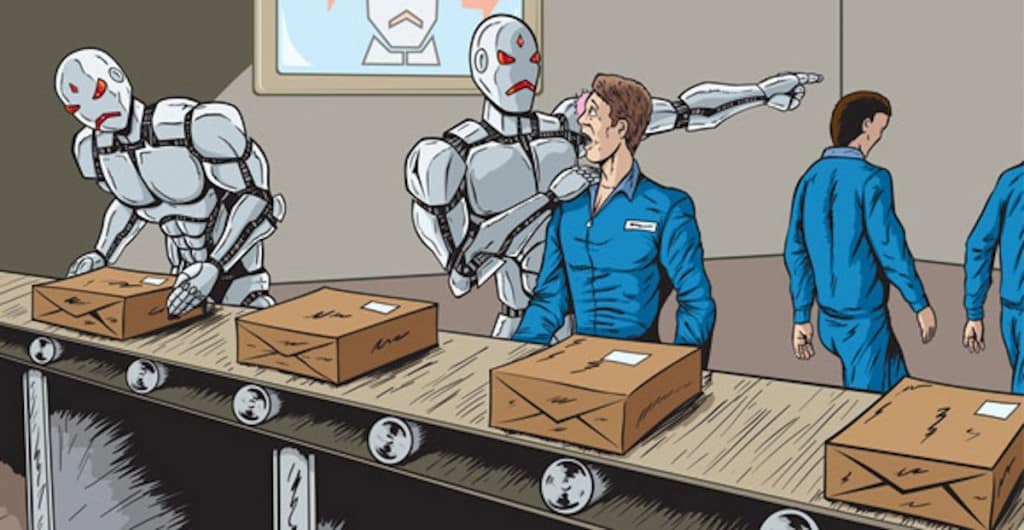
Advancements in technology have always posed the risk of creating machines that do the jobs of humans. Manufacturing jobs in particular are often one of the most at risk areas.
With new advances in the field of robotics being made every day, it has been estimated that nearly half of all US jobs will be vulnerable to computerization within the next 20 years.
Previous employment areas which were once considered ‘human only’ are now being taken over by machines. Twenty years ago a self-checkout machine was thought impossible, now there are almost half a million worldwide, enabling one member of staff to run up to six checkout lanes at a time.
With AI becoming ever more advanced, there may come a time when computers are able to do jobs which requires human decision making. With automatic cars also just around the corner, will the sole job for humans in the future be the repair and maintenance of the machines which took their jobs? Or at least until a device is invented that can do that as well.
The Death Of Human Interaction
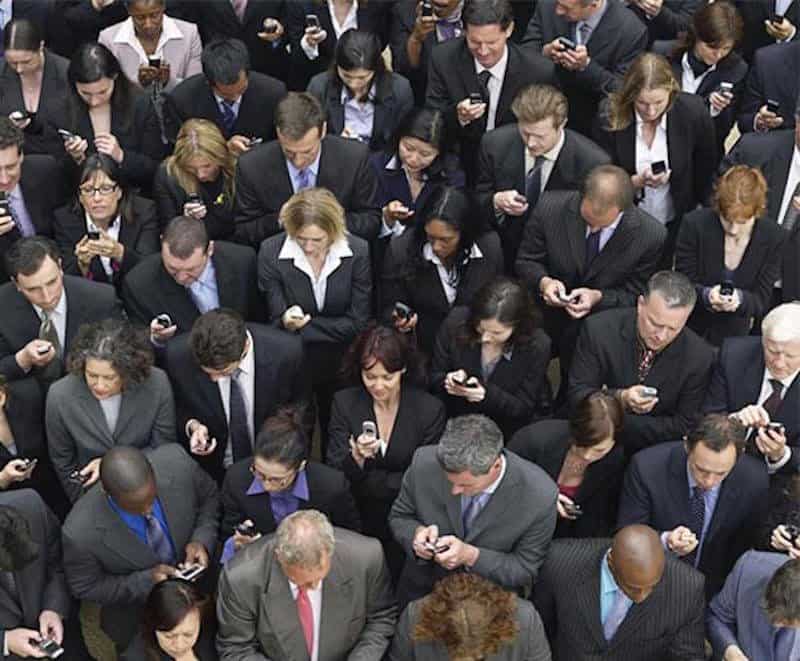
Another future danger which many claim is a problem we are facing today. Has the advent of social media made society anything but social? Would you prefer to purchase something online or using a machine rather than talk to a fellow human being? Is texting always better than speaking over the phone? The accusations of technology destroying the art of conversation may hold some truth, but what of the future? How will the next generation’s children of the digital age interact with others?
If we do stop all non-technological social interaction, it can result in some unforeseen problems. There are even biological effects that arise from lack of human interaction. An online only world may result in the death of the offline one.
The Over-Reliance On Technology
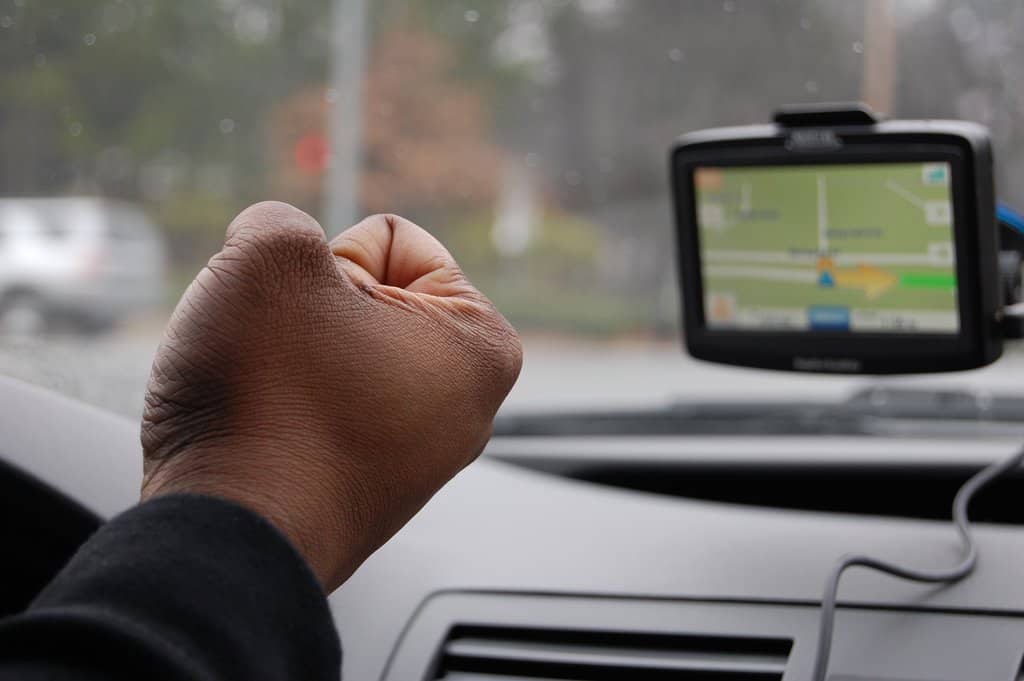
While technology undoubtedly has the ability to advance us as humans, becoming over-reliant on it may actually reduce our intelligence. There are numerous examples today of drivers blindly following GPS instructions into rivers and ditches, people who cannot spell without the use of a word processor, and those who cannot perform simple math problems without the use of a calculator.
So what will the future give us? Top scientist Professor Stephen Hawking said “The development of full artificial intelligence could spell the end of the human race.” Part of this risk could come from giving more military control over to Artificial Intelligence, in theory reducing the chance of human error. While it’s highly unlikely full military decision making would be handed over to an AI, areas such as targeting and drone control could be put in the hands of computers.
Eventually the human race may lose the skills it has gained over the years; with almost every aspect of our lives totally reliant on technology. The problem will come if that technology ever fails, or turns against us.
The Increase In Technology-Related Illnesses
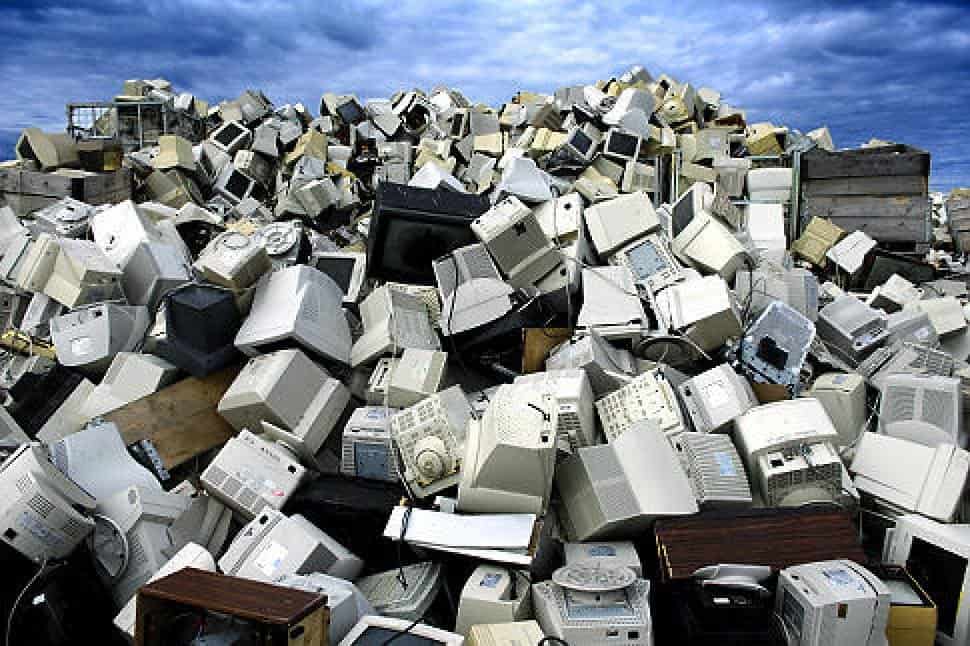
There have been few issues as controversial as the link between human illness – specifically cancer – and modern technology. While the overwhelming amount of evidence suggests that the use of cell phones and wi-fi does not increase the risk of cancer, there have been some studies suggesting the opposite is true.
While the future versions of wi-fi and cellphones may only pose a minimal threat to user’s health, it is the environmental dangers which may prove the biggest risk to humans: the technotrash which is produced from constantly renewing our gadgets, the using up of natural resources as demand increases and prices drop, the pollution that comes from the manufacture and use of these items. Unless more effort is put into developing ‘green’ tech, this could become a large, if initially unseen, danger in the future.
The Gray Goo Scenario
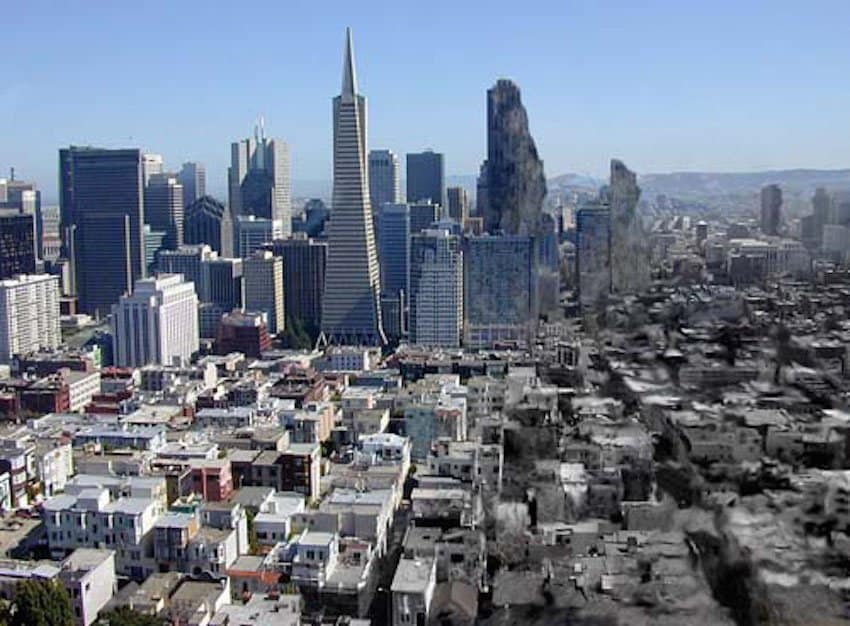
Nanotechnology is an area of science and engineering that involves the study and manipulation of particles 1-100 nanometers in size. They have the potential to bring huge benefits in fields such as science, engineering, computing and, especially, medicine.
The Gray Goo scenario is the possibility that these tiny, self-replicating machines may get out of control and start converting all organic matter on earth into other nanobots. Leaving behind a gray goo and a lifeless earth.
While this may seem to some like nothing more than a science fiction fantasy, the scenario has been taken seriously enough for a top nanotechnology researcher to suggest some public policy recommendations to prevent this from becoming a horrific reality.
The Singularity
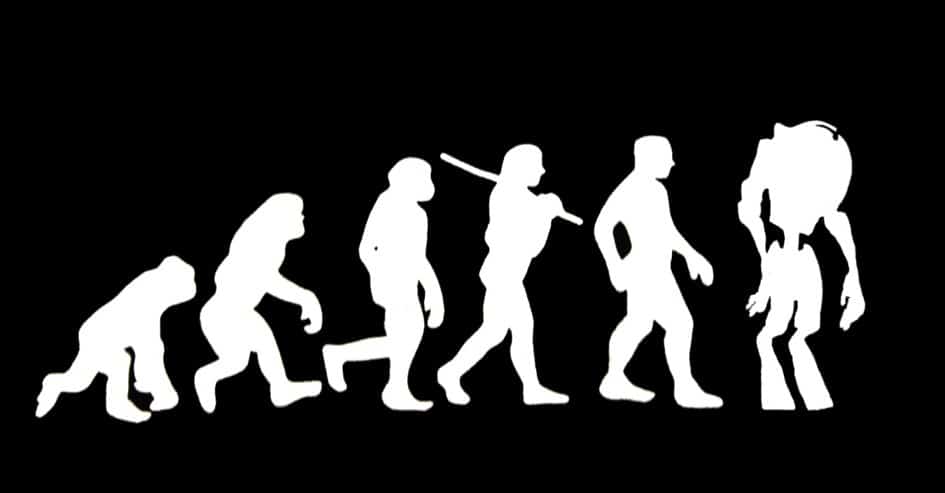
The singularity is the term used to describe the hypothesised moment when technology becomes so advanced it radically changes civilization as we know it. This could be from an artificial intelligence reaching a level of super intelligence we cannot imagine, human biology and technology becoming so intertwined that we become almost part machine, or even if we achieve the ability to upload our consciousness so that we essentially live forever.
The danger of the singularity comes from the risk that we may stop being human altogether. Could there come a point in the far-flung future where technology really does advance to such a point that we cannot imagine the consequences? Or is it just something in the fevered dreams of technophobes?
Artificial Intelligence
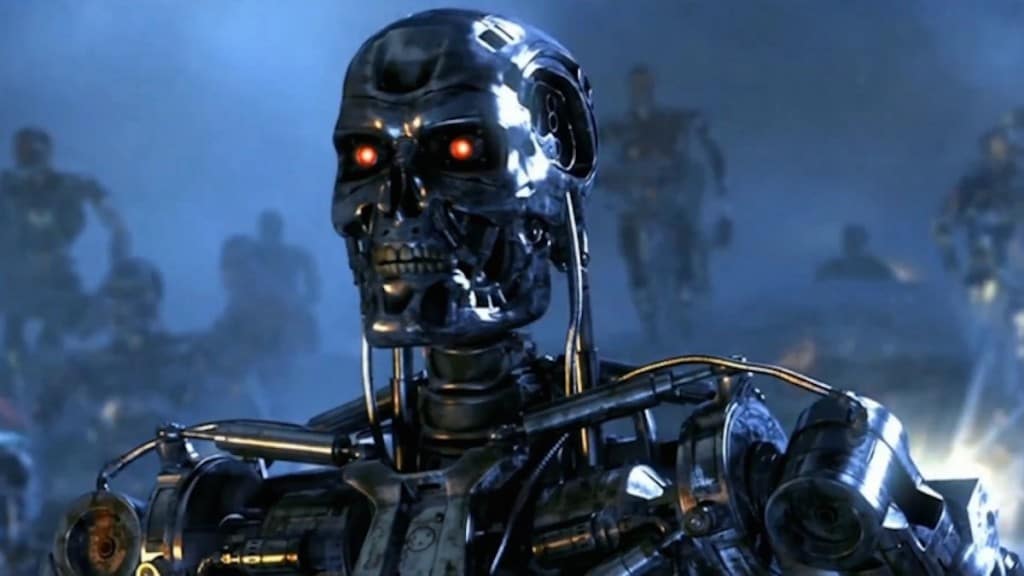
Professor Stephen Hawking, Bill Gates, Elon Musk, Clive Sinclair, many top minds are now warning of the future dangers which uncontrolled advances in AI could bring. With Musk claiming it could be “potentially more dangerous than nukes“.
Part of the reason people don’t take the threat from AI seriously is the number of times it has been showcased in fiction. Movies such as Terminator have made this threat appear as worrisome as aliens invading. Yet every year huge advancements in the field are made, and without careful controls in place, the chance of creating a super intelligent AI will increase as time progresses. If this happens, not only may it consider humans a lower form of life and therefore expendable, but it may even create more AI’s, making the human race obsolete.



